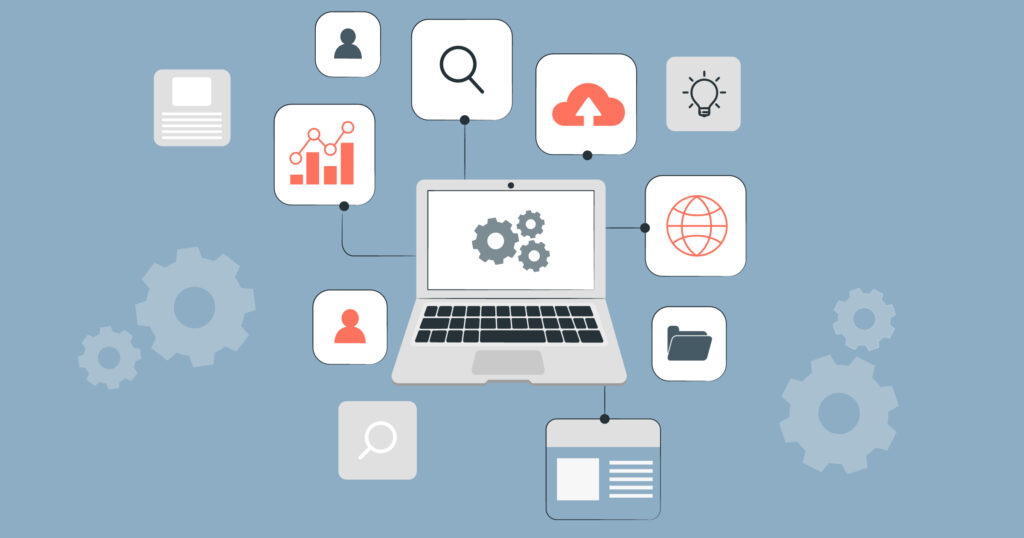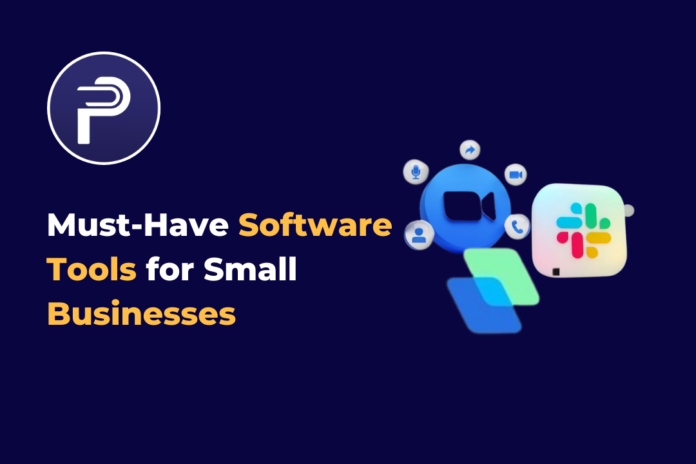Advancements in business software technology are equipping entrepreneurs with a growing range of affordable tools. As business demands evolve, developers are leveraging artificial intelligence (AI) and machine learning to create solutions that make processes faster, simpler, and more accurate.
Hyper-automation powered by AI is revolutionizing areas like customer service and supply chain management. Companies now use AI for predictive analytics, trend forecasting, operational optimization, and data-driven decision-making. Enhanced language models have also led to the rise of customer chatbots and virtual assistants.
These technologies enable businesses to perform more efficiently and provide a competitive edge, especially for new entrepreneurs. Software solutions not only streamline daily operations for small businesses but also improve customer accessibility and engagement.
Modern consumers expect a seamless digital experience, but achieving this while staying within budget requires prioritizing essential tools. By focusing on key software that improves both operational efficiency and customer service, small businesses can achieve their goals without overspending.
Unsure where to begin? Here are five types of essential software every small business should consider.
Software for small businesses and startups

Must Read:How live chat improves e-commerce experience
Every business has unique needs, so it’s crucial to evaluate your organization’s requirements before selecting the software you’ll use daily. Switching programs later can be inconvenient, so it’s wise to carefully consider your options, especially during the startup phase.
The ideal software for your business will largely depend on the nature of your products or services. For instance, if you sell physical products, an e-commerce platform might be essential. Conversely, a business centered around a sales team might require a robust sales management solution.
Regardless of your industry, take the time to critically assess your needs. When exploring software options, it’s easy to feel overwhelmed or tempted to adopt more tools than necessary. Instead, aim for simplicity and focus on the software that will truly help your business operate efficiently and effectively.
One advantage of modern software solutions is their user-friendly design. In the past, leveraging advanced tools often required programming expertise. Today, however, there’s a wide range of intuitive software tailored for users with little to no technical background, making it easier than ever to get started.
Software for website building
Nowadays having a website is essential for any small business. Unless you rely entirely on word-of-mouth referrals, customers will struggle to find you without a functional online presence.
Hiring a professional to design your website can be a smart investment. Experienced designers know how to create a site that aligns with your brand and meets your customers’ needs. However, before hiring someone, it’s important to decide which website-building tools you want to use, as this will influence your choice of designer.
Website-building software ranges from simple drag-and-drop platforms like Squarespace to advanced tools requiring coding expertise. For small businesses, WordPress is often a top choice. This open-source platform works with various hosting providers and themes, offering full customization and ownership of your site.
Some excellent website-building tools to consider include:
– Figma
– Webflow
Software for accounting and payment transaction
All businesses, including non-profits, needs to manage its finances effectively. Small business tax requirements can be complicated, making it essential to maintain accurate and detailed records. Selecting the right accounting software is crucial to ensure accuracy and simplify tax preparation.
Top Accounting Software for Small Businesses:
– QuickBooks
– FreshBooks
– Wave
– Xero
– Zoho Books
– Sage
– OneUp
In addition to accounting tools, having reliable payment processing software is equally important. If you operate a physical storefront and accept credit cards, your requirements may differ. However, many small businesses and startups can manage with straightforward options like Stripe for payment transactions.
Software for project management
Is your business running on controlled chaos? If so, project management software could be a game-changer. These tools help you organize both short-term and long-term projects while managing multiple team members.
With project management software, you can create tasks, set deadlines, and assign responsibilities to your team. You’ll also be able to monitor progress, ensuring everything stays on track. If you’re focused on growth, these tools can streamline your workflow and help you manage all your ongoing projects.
Top Free Project Management Software:
– Trello
– Asana
– ClickUp
– Redbooth
– Basecamp
– MeisterTask
Since many project management tools offer similar features, it’s essential to identify your priorities and choose the software that best fits your needs.
Software for customer Relationship and Communication
Customer relationship management (CRM) software is an invaluable tool for sales and marketing teams. It allows you to track and manage the customer journey, which is particularly critical for businesses with long sales funnels.
Top CRM Software Options:
– HubSpot
– Salesforce
– Zoho CRM
– Freshworks CRM
– Pipedrive
For team communication, consider tools like Zoom for video conferencing and Slack for real-time messaging. If your team operates remotely, investing in comprehensive communication software becomes even more important to maintain collaboration and efficiency.
Software for Marketing and PR
Sales, marketing, and public relations are vital to the success of any small business. These tools help you raise awareness, connect with potential customers and your community, and drive sales to boost revenue.
Email marketing is an often-overlooked but powerful way to engage customers, build loyalty, and convert prospects who may not be ready to purchase immediately. Social media management tools like Buffer and Tailwind can also be valuable, depending on your marketing strategy.
Top Email Marketing Software Options:
– Mailchimp
– Constant Contact
– OptinMonster
– Brevo
– ConvertKit
– HubSpot
The right marketing and PR tools can enhance your strategy and help you reach your goals more effectively. Choose solutions that align with your business needs and audience.
Analytics Software
In today’s business landscape, data is essential for understanding your customers and optimizing workflows to boost profits and enhance customer satisfaction. Leveraging data doesn’t have to be complicated, and doing so can significantly contribute to the long-term growth of your small business.
Google Analytics is an excellent tool for small businesses and is a must-have in your toolkit to help track and analyze key metrics effectively.
Conclusion
Investing in quality software that you and your team will actually use is important, but be mindful not to overdo it. Subscription costs can quickly add up, straining your budget unnecessarily.
As you evaluate your options, take advantage of free trials to determine which tools truly align with your business needs. Don’t feel pressured to adopt software just because it’s popular,focus on what’s essential for your operations. Keeping your spending in check allows you to allocate resources to other areas of your business and avoid unnecessary digital clutter.
These essential software tools are meant to support your business, not dictate how it runs. Whether you’re starting your first venture or managing an established business, choose your tools thoughtfully and use them strategically to ensure they add value without becoming a burden.

